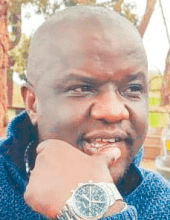Meeting exposes gaps in roles of councillors, MPs

With just four months to go before the 2014 Tripartite Elections, many Malawians still do not know the roles of a councillor and an MP, a meeting of chiefs in Blantyre observed.
The meeting, which was organised on Saturday by Pentecostal and Charismatic Network, a mother body of all Pentecostal churches accredited to conduct voter education ahead of the elections, attracted chiefs and other community leaders from Blantyre City East Constituency.
During the discussion funded by National Democratic Institute (NDI), it was evident that none of the participants was sure about the roles members of Parliament (MPs) and councillors are supposed to play.
Pentecostal and Charismatic Network executive director Willie Chaponda said his office did a research which exposed a big misunderstanding on the roles of the two offices.
“We did a research and learnt that most people do not understand how we can use the two in national development. Most of the participants did not know and very few had answers.
“However, those with answers were not sure. We wanted to close the gap and from the reaction during the discussion, we are happy to say we have achieved it,” said Chaponda, adding that they have urged the participants to take the messages to people in their respective areas.
He said they will have one meeting per constituency across the country to ensure all chiefs take the messages to their communities.
Village Head Mpalonde of Traditional Authority Kapeni described the training as important.
“I was ignorant of the roles of a councillor and an MP. The training has opened my eyes and I will take the messages to my people. I have learnt that an MP is responsible for making laws while the councillor is responsible for facilitating development projects,” he said.
The meeting also attracted officials from National Initiative for Civic Education (Nice), leaders of various community-based organisations (CBOs) and faith-based organisations.





